Leading change
The NDP's progressive development
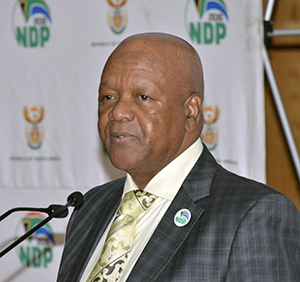 “Yes, I want to talk about leadership. And if we have ever needed it, it is now! Our heroes, like Biko—these were the cadres who fought and died for our freedom so that we may get to the “seats at the table…Yet, now that we have those seats, now that we have pulled them up to the nation’s table, we dish ourselves generous slices of ‘pap and vleis’—some of us, even have second rounds? And not to mention the Mqombothi…”
“Yes, I want to talk about leadership. And if we have ever needed it, it is now! Our heroes, like Biko—these were the cadres who fought and died for our freedom so that we may get to the “seats at the table…Yet, now that we have those seats, now that we have pulled them up to the nation’s table, we dish ourselves generous slices of ‘pap and vleis’—some of us, even have second rounds? And not to mention the Mqombothi…”
Jeff Radebe, Minister in the Presidency for Planning, Monitoring and Evaluation, shared his sentiments on leadership at the Unisa NDP 2030 lecture on 15 September 2017.
Referencing the commemoration of the 40th anniversary of the death of struggle icon Steve Biko, he said, “It is our responsibility, as a nation, to ensure that Steve Biko and other martyrs of our liberation struggle like Robert Sobukwe, Solomon Mahlangu, Chris Hani, OR Tambo, and Tata Madiba and many others did not struggle nor die in vain. History will judge us harshly. We simply have to up the ante.”
Unisa Principal and Vice-Chancellor Prof Mandla Makhanya also paid tribute to the sacrifices made by leaders like Biko.
“As I paused to contemplate what the significance of this moment is I am reminded of the sacrifices that many men and women, youth and children made to deliver our democracy and set us on our path towards a non-racial, prosperous, united and just society. Cumulatively, sacrifices of these leaders, some of whom lost their limbs and lives, brought us to a point where we can talk of our long-term national development vision as the National Development Plan (NDP). Such struggle icons have become part of our political heritage and a roll call of our worthy ancestors.”
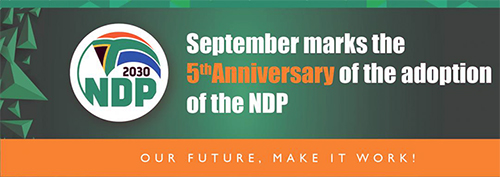
The NDP
Last week also marked the fifth anniversary of the adoption of the National Development Plan 2030 (NDP). Radebe, who is also the Chairperson of the National Planning Commission, shared some of the progress that has been made.
Through the implementation of Operation Phakisa, government has developed very specific interventions in the Ocean Economy, Health, Education, Mining and Agriculture sectors. The Ocean Economy, in particular, has unlocked R7 billion in investments and created nearly 7 000 jobs. An Office of the Chief Procurement Officer in the National Treasury has been established and an Employment Tax Incentive Act aimed at helping young people enter the labour market was passed by Parliament in 2013, with implementation beginning this year.
“We are implementing incentives and support services for investors through our special economic zones (SEZs) programme. As part of the suite of SEZs, the six industrial development zones (IDZs) established between 2002 and 2014 have attracted about 59 investors with an investment value of more than R10.7 billion,” he said.
Accelerating change
While acknowledging that there have been pockets of excellence within NDP programmes, Radebe says the country needs to accelerate progress.
“We must forge ahead and deliver on the mandate our people gave us and bring about the necessary step change in the socio-economic conditions of our people. The National Development Plan, Vision 2030 serves as that compass that will guide us to a more prosperous South Africa. South Africa must intensify the national dialogue to seek common solutions and concrete actions to deal with slow growth and poverty through a partnership with business, organised labour, and all stakeholders who share a commitment to ensuring inclusive growth. For our growth strategies to be fully effective we need the support and direct involvement of business, labour, and civil society.”
It’s the youth that Radebe believes South Africa should look to. He’s aware that students and young leaders of today will play an important role in taking the nation forward.
“We must invest in skills development so that we can produce young men and women who will become exceptional innovators and make a meaningful contribution to economic growth. Let us explore ways in which government, youth and business can collaborate in creating jobs that are required to grow an inclusive economy as envisaged in the NDP.”
The role of higher education
Government has invested a substantial amount of money into education in South Africa. It’s also one of the key objectives of the NDP. The minister believes institutions like Unisa can play a critical role in realising the aspirations of the plan.
“Academia, including Unisa, must also take up the cudgels. You have a role to play. Engage us; let’s collaborate meaningfully over the next five years to ensure we do not tread on the hopes and dreams of our people,” Radebe said.
Leadership
Leadership has been an issue on the lips of many South Africans. Radebe did not shy away from the topic.
“Where are the leaders: are they to be found anywhere? The answer is yes—and in this room. You are the leaders today. You are the ones we have been waiting for. You are the ones upon whose shoulders rejuvenation, recovery and rebirth are foisted. The bad news—it is a heavy burden. The good news? We can do it—for we have done it before, and I have every conviction that we are tough and brave enough to do it again. Government, the entrepreneurs, the youth, the women, the business sector – the CEOs, CIOs, CFOs, and all the other Cs, yes, including Chancellors and Vice Chancellors of universities—we can do it again.”
Looking forward
This anniversary of the NDP takes place at a very significant period in the South African calendar. It happens in Heritage Month under the theme The year of OR Tambo: Celebrating our liberation heritage.
Radebe reminded everyone that the South Africa the government is trying to build by 2030 should be just, fair, prosperous and equitable.
“We may not be able to change the entire world around us, but at least, we can start, here at Unisa, by trying with the circles of virtue within our reach, by becoming an active and participatory citizenry, wherever we find ourselves. Again, I submit to you, the NDP envisions a South Africa where opportunity is determined not by birth, but by ability, education and hard work,” he concluded.
*By Kirosha Naicker
Publish date: 2017-09-18 00:00:00.0


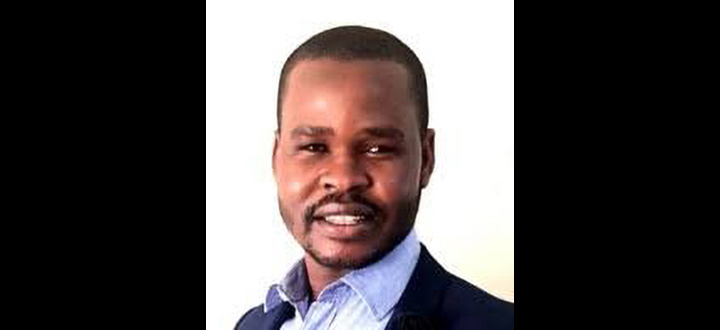 Mental health among men in the workplace needs more attention
Mental health among men in the workplace needs more attention
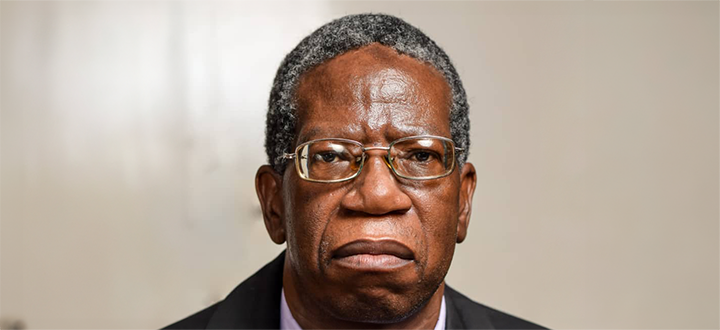 "I owe everything to Unisa and my late supervisor's priceless mentoring"
"I owe everything to Unisa and my late supervisor's priceless mentoring"
 Majikijela - a queer scholar raising homosexuality awareness through his work
Majikijela - a queer scholar raising homosexuality awareness through his work
 Unisa and Inqaba Biotec unveil groundbreaking DNA research platform
Unisa and Inqaba Biotec unveil groundbreaking DNA research platform
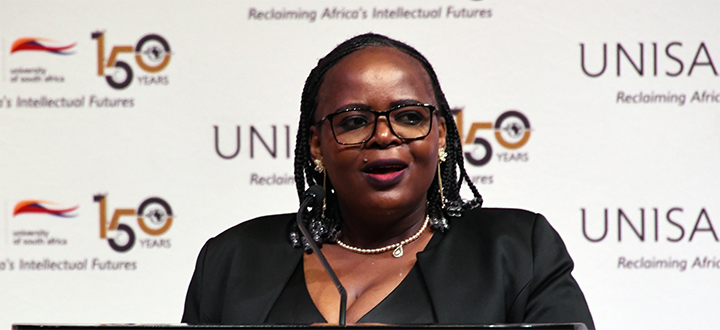 College of Law appoints esteemed scholar as executive dean
College of Law appoints esteemed scholar as executive dean